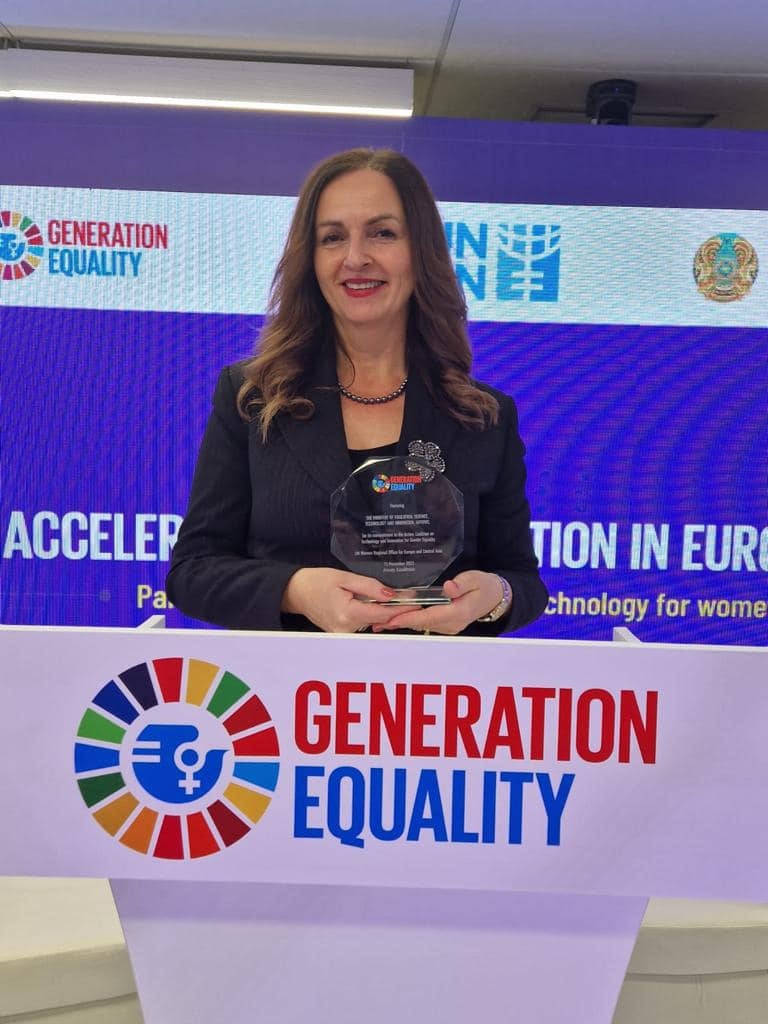Beyond financial support
Minister Nagavci’s commitment goes beyond financial support. The Ministry also organizes activities to raise awareness and promote role models in STEM. One such event is the “STEMinists” conference, which, supported by UN Women Kosovo, aims to promote gender equality in STEM fields. The conference, under the patronage of the Prime Minister's Office, gathers young women studying and working in STEM from Kosovo and around the world.
“Our commitment to empowering women and girls in STEM is unwavering. We plan to increase the university scholarships for girls in STEM fields, ensuring even more opportunities for young women to pursue their passions. Additionally, we are excited to continue organizing the “STEMinists” conference in 2025 as an annual tradition that celebrates and promotes women in STEM. These initiatives are part of our broader strategy to create a more inclusive and equitable educational landscape for all,” concluded Arbërie Nagavci.
A testament to success
Desara Qerimi’s story is a testament to the success of these initiatives. The scholarship has been a pivotal support in her academic journey, enabling her to delve deeper into her field and explore opportunities beyond the classroom. Desera says, “For me, the vital part and the value lie behind what this program symbolizes, and that is that women and girls are supported and encouraged to study STEM-related disciplines.”
1 References to Kosovo should be understood to be in the context of UN Security Council Resolution 1244 (1999).
2 Women now make up 50% of students in STEM fields at the University of Pristina, a significant shift in these traditionally male-dominated fields.

